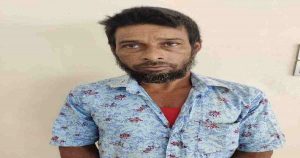Outgoing Indian High Commissioner in Dhaka Pankaj Saran on Saturday said India will always deal with the ‘government of the day’ and mentioned that there has been no change in the position India took on January 5 election in Bangladesh.“We’re dealing today with the government of the day. This has been our policy and this continues to be our policy. India will always deal with the government of the day,” he told a select group of journalists just a few days ahead of his departure from Dhaka.
The diplomat who will soon take over his charge in Moscow, Russia said India still believes that the January 5 election was a ‘constitutional necessity’ and remains their position even today.
Saran made the remark when a questioner drew his attention about Western countries’ criticisms on that election mentioning that BNP is trying to reach out BJP after changes in India’s state power.
A questioner asked whether India is happy with democracy that exists in India’s close friend Bangladesh.
In response, the Indian High Commissioner said they do not prescribe how the people of Bangladesh would govern themselves and choose their leadership.
“We’re a democratic country. We support democracy. We believe in democracy,” he said adding that when it comes to affair of another independent country it is the people of that particular country to decide.
Saran said it is important that they have built their democratic institutions and if there is a request made to India, they would be very happy to help strengthen democratic institutions in Bangladesh.
Responding to a question on security issues, Saran said the threat from the IS or ISIL is a global threat and this is something almost every country in the world has agreed to confront.
“And India is no exception. We ourselves taking whatever necessary measures there are to counter this threat. I presume the government of Bangladesh is doing the same,” he added.
On security cooperation, he said Bangladesh and India have a very good relationship on ‘day-to-day’ security cooperation. “We have good relationship and good understanding with Bangladesh.”
Appreciating security cooperation India received from Bangladesh during 2014 Burdwan blast, the diplomat said wherever there is common link or common threat, in the true spirit of partnership, both countries have cooperated. “And we’re cooperating.”
On recent incidents involving attacks on foreigners, the Indian High Commissioner said he does not want speak on the subject in which he is not competent.
He said it is the responsibility of Bangladesh government and intelligent agencies to reach a determination on what is happening in Bangladesh through investigation. “I don’t think the government of India can make a determination on what is going on here.”
Saran did not comment on individual incident but hoped that every citizen of Bangladesh will be able to enjoy the basic rights of a citizen whichever field she or he is working.
On anti-India rhetoric, the Indian envoy said as the High Commissioner of India anyone needs to be prepared to accept all views about India.
“India certainly doesn’t control the different views of parties about India. We’ve to accept the views. We’ve to respect all views,” he sad adding that the best way is to talk and communicate and convey India’s views.
Saran said it is a constant process to understand each other better by talking frankly and encouraging more travels from both ways. “This is a very important part of relationship. There’s is nothing better than dialogue to ensure better appreciation.”
Being neighbours, the outgoing envoy said, Bangladesh and India shared linked destinies. “We’re sailing the same boat. Either we sail together or we sink together,” he said adding that “our destinies are in our hands”.
Describing his tenure in Bangladesh a very ‘satisfying’ one, the diplomat said they have generated a new kind of ‘trust and mutual understanding’ between the two countries by implementing the long pending issues like Land Boundary Agreement (LBA) that makes it ‘easier’ to resolve other issues.
Saran who played an important role in settling LBA said it has been a real privilege for him to serve as Indian High Commissioner in Bangladesh. “This has been an important stage of our relations. I’ve been fortunate to be present at a time when the relations have developed in many directions, and we’ve been able to make progress on issues which were stuck for decades.”
Both the countries have been able to narrow down their differences and open up new areas of cooperation during the last few years, the diplomat said adding that Bangladesh-India relationship is very important not just for Bangladesh, but also for India.
“And this relationship has many stakeholders on both sides of the border. It goes well beyond the two governments because of the geography and history and cultural links,” he said mentioning that this is a relationship which affects people in all walks of life, in all areas of activity.
Saran said the future of the relations depends on the energy of the young generation of both sides. “The future would focus on economy, trade, investment, connectivity and issues like energy, environment, health and food sufficiency that affect common people.”
On ‘high point’ of his tenure, he said, “I had been able to see the transition of the relation to a higher level in almost every single sector.”
He, however, lamented that there were some implementation challenges of the decisions from the both sides.
Saran admitted that Bangladesh’s export to India did not increase as much as he had expected despite duty-free market access.
He said Bangladesh has become a “far more mature and self-confident” country today than before. “Bangladesh’s progress had been recognised by the world. Today, not just India but every single power of the world wants to have good relations with Bangladesh,” he mentioned.




